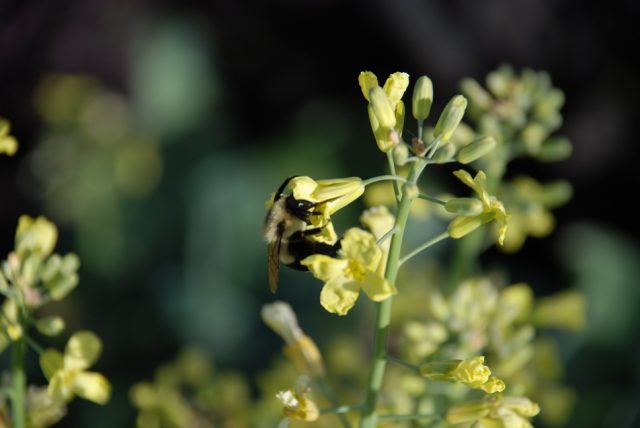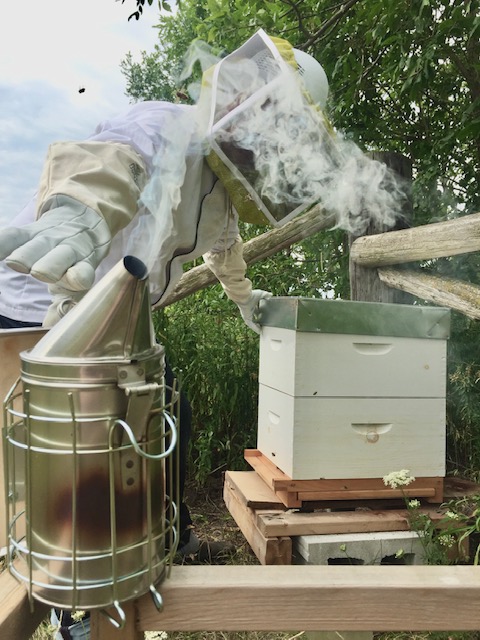Here’s the buzz for World Bee Day

Do you hear it?
May 20 is “World Bee Day” and Friends of the Earth wants us to create a “B & B” in our yard to host bumble bees and other wild, native bees.
Why?
With more than 40 species across Canada, bumble bees are key pollinators for many native plants and are highly effective pollinators for specific crops, like tomatoes, according to Beatrice Olivastri of Friends of the Earth Canada (FOE).
“Your home and its yard have been your refuge during COVID-19. We’re asking you to share that refuge with native bees,” says Olivastri. “COVID-19 has made us even more aware of food security and the importance of locally grown produce.”
World Bee Day, proclaimed by the United Nations, is intended to raise awareness and action in support of bees and their role as pollinators.
Bees are critical to what we eat. In fact, more than two-thirds of food crops we eat need native bees, honey bees and other pollinators to successfully produce a crop, FOE says.

Around the world, intensified agriculture, with its related loss of habitat along with massive increase in pesticide and herbicide use, has taken a considerable toll on bee populations – including in Canada.
So, here’s what you can do to help these pollinators this summer, according to FOE:
— Download Creating Bee & Bees for free via Friends of the Earth’s website;
— Introduce flowering plants with lots of pollen and nectar. Make sure they’re neonic-free;
— Create a “Bee & Bee” area in your yard, making sure it’s sunny and pesticide free;
— Leave the mulch off so you don’t smother the bees;
— Remember, leaves and last year’s hollow stalks are favourite places for hibernating bees.
Olivastri says you can also put up a Bee & Bee sign to let your neighbours know your yard will start looking less manicured (download a sign via FOE website).
“Honey bees are the world’s tiniest livestock, living in hives managed by beekeepers,” says Olivastri.
“But Canada’s more than 850 wild, native bees are mainly solitary, ground nesting and on their own for survival. They need your help. Please offer them refuge in your yard.”

